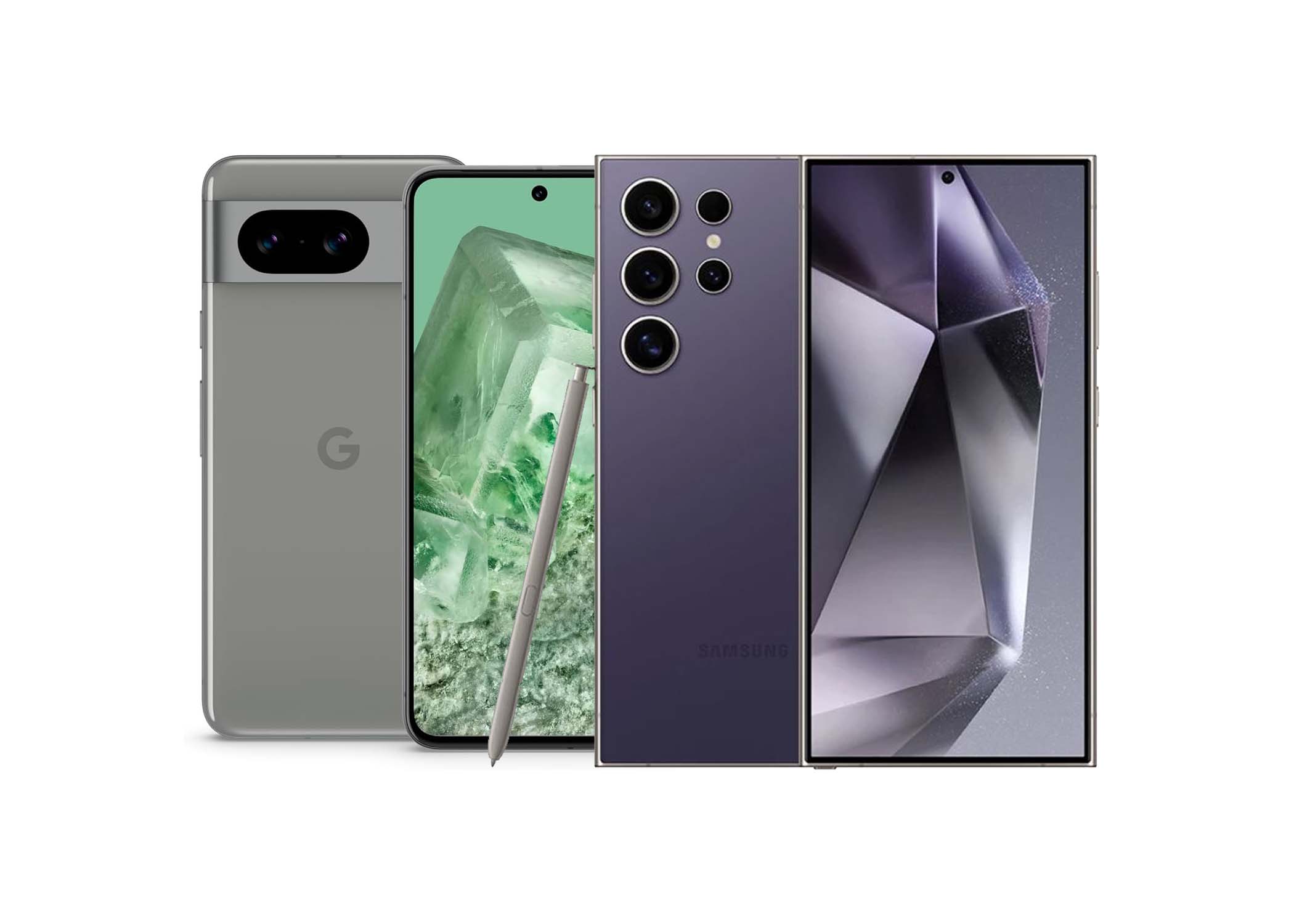Google and Samsung’s seven-year OS update promise for the Pixel 8 and Galaxy S24 left me stunned. It outlasts all previous phone makers, even Apple’s five-year iOS support. However, I’ve been on the lookout for any hitches in this seven-year journey. I’ve been wary of any signs of Google or Samsung backing out.
I’m hoping Google won’t extend this seven-year promise to the rumored Pixel 8a. The stress would be too much for me. I doubt Google’s ability to uphold a seven-year update commitment for the Pixel 8a. I foresee disclaimers and caveats for the Pixel 8 as we approach the end.
Hints have already surfaced. I don’t want this promise to overshadow the Pixel 8a, Google’s next budget-friendly Pixel, rumored to launch in May at Google I/O 2024. I’d rather appreciate the phone for what it is, without the long-term disappointment from Google.
Can a seven-year-old phone run the current Android version? It’s uncertain.
In 2017, Samsung introduced the Galaxy S8, a top-tier Galaxy phone. It boasted impressive specs, even by today’s standards, with an Exynos or Snapdragon 8-core processor, 4 or 6GB of RAM, USB-C, wireless charging, and microSD card expansion.
Today, it would be a decent budget phone. There are cheaper phones with less than 4GB of RAM. So, one might assume the Galaxy S8 could upgrade from Android 7 to Android 14. Unfortunately, Samsung stopped updating the Galaxy S8 after Android 9. That’s right, this flagship phone received only two major OS updates.
The Galaxy S23 series, launched in the same year as the Pixel 7 series, only gets four years of updates, taking it from Android 13 to Android 17 by 2027. The Pixel 7 series only gets two short years of Android updates. Google isn’t promising any new Android updates for the Pixel 7 Pro after 2025.
Now, Google and Samsung want me to believe that the latest phones will receive seven years of support. Google is more than tripling its support promise from two to seven years in one generation. However, we’ve already seen signs of faltering and inconsistency in updates.
The Pixel 8 Pro’s Gemini Nano Advantage Sparks Concerns for Longevity
The Pixel 8 Pro was given Google’s Gemini Nano large language model (LLM) for on-device AI language suggestions. The Pixel 8, however, was left out and had to rely on Google’s cloud for AI responses. This was surprising, given that both phones use the same Tensor G3 chipset, although the Pixel 8 only has 8GB of RAM compared to the Pixel 8 Pro’s 12GB.
This raised concerns. If Google can’t provide the same features to both devices just a few months after launch, how can it maintain this for seven years? What will happen in two years when the Pixel 8 starts lagging behind in features? Can it still be considered up-to-date if not all features are updated?
Google eventually equipped the Pixel 8 with Gemini Nano, achieving parity between the phones. There have been no further unexpected omissions from the Pixel 8. The Pixel Fold’s missed updates may raise questions, but Google’s priciest phone, which uses an older Tensor G2 chipset like the Pixel 7a, was never given the same promise as the Pixel 8 series.

The Pixel 8a: Anticipating Google’s Budget-Friendly Offering
Let’s talk about the Pixel 8a. It’s not out yet, but rumors hint at a Google I/O debut. If Google sticks to its A-series pattern, we can anticipate vibrant colors, toned-down camera specs, and a price lower than the Pixel 8.
Like the previous A-series phones, it might be priced $100 higher than desired, prompting me to advise waiting for a price reduction.
The Pixel 8a is expected to be a budget-friendly phone. It’s likely to feature the same Tensor G3 chipset as the Pixel 8, given Google’s habit of using identical chips in the same model year’s launches. It should also have the same 8GB RAM as the Pixel 8, mirroring the RAM parity between the Pixel 7 and Pixel 7a.
Despite the probable performance similarity between the Pixel 8 and Pixel 8a, I won’t hold the same expectations for software updates and support. I’ll anticipate less, considering the lower price. That’s the essence of a budget phone. It’s acceptable, provided Google manages expectations correctly.
Google could take a leaf out of Apple’s book on customer satisfaction.
For once, I’d like Google to set modest expectations and exceed them. Commit to three years of updates for the Pixel 8a. Deliver every update promptly, in sync with the Pixel 8 and Pixel 8 Pro. Make it a reality, just like Apple does.
I sincerely hope Google doesn’t pledge seven years of updates. If so, I’ll be compelled to question company representatives each time the Pixel 8a misses an update. Whenever the Pixel 8 receives a new AI search feature and the Pixel 8a doesn’t, I’ll wonder why Google neglects its budget phone.
I don’t want to do this for the next seven years. In fact, I don’t want to do it at all. So, Google, don’t force me to doubt and scrutinize the updates. Don’t overpromise for this budget phone. Keep it affordable. Keep it quality. Then, make a support promise that can be fulfilled. That’s my expectation for the Pixel 8a in the coming years.
